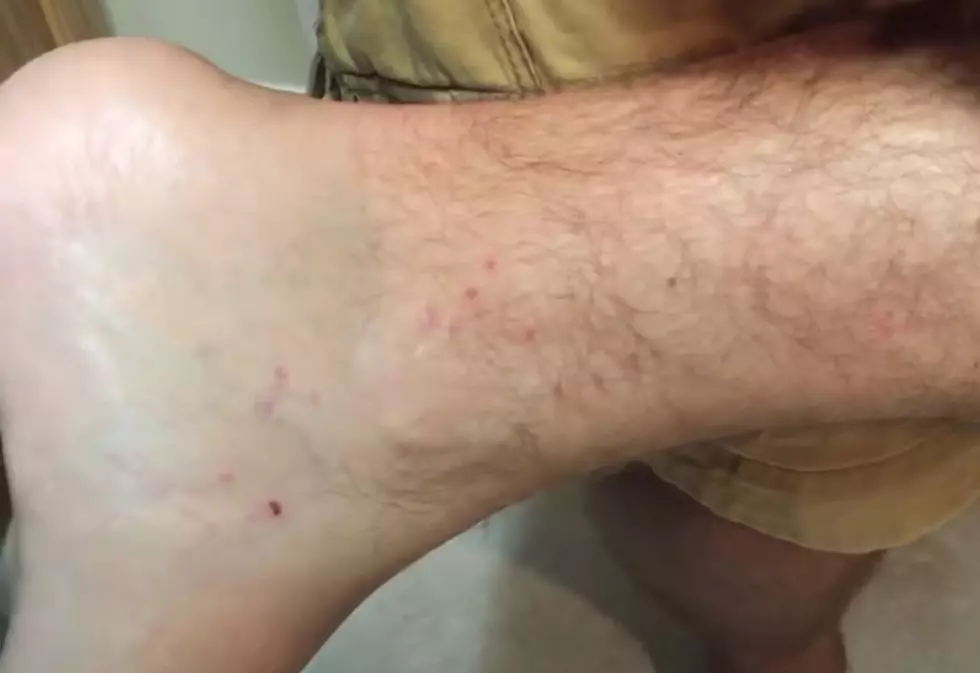
Genetically Modified Mosquitoes Approved for Release in the U.S.
A new mosquito could be released into the wild in the next few months. A British biotech company called Oxitec has been granted permission to release genetically modified mosquitoes in Florida and Texas.
The Environmental Protection Agency approved an experimental use permit allowing Oxitec to release genetically modified mosquitoes in the Florida Keys and Harris County, Texas (which is where Houston is located).
“To meet today’s public health challenges head-on, the nation needs to facilitate innovation and advance the science around new tools and approaches to better protect the health of all Americans,” a news released by the EPA stated.
The permit lasts for up to two years and requires Oxitec to "monitor and sample the mosquito population weekly." However, the EPA has the right to cancel the permit at any point during that 24-month period if unforeseen outcomes occur.
So why create a new kind of mosquito?
Well, you may remember the Zika virus outbreak a few years ago. It's the virus that could cause a birth defect called microcephaly (underdevelopment of the head and brain).
Oxitec claims its Aedes Aegypti mosquito (known as the OX5034) can drastically reduce the spread of Zika along with dengue, chikungunya and yellow fever.
Here's how it would work
Male mosquitoes don't bite and they feed on flower nectar. Basically, male mosquitoes are harmless to humans. However, female mosquitoes use blood to grow their eggs.
Oxitec has created a male mosquito with a special gene that prevents female offspring from surviving to adulthood. The new males grow up, mate with more females, and over time the number of this species of mosquitoes declines.
“Continual, large-scale releases of these OX5034 GM males should eventually cause the temporary collapse of a wild population,” says Oxitec.
The company claims success before with this program. During Brazil's Zika outbreak in 2015 and 2016, Oxitec claims its "friendly" mosquitoes reduced the population of Aedes Aegypti by 89%.
But, as you can imagine, there is a bit of opposition to these genetically modified mosquitoes.
Introduction in the U.S.?
Oxitec has tried for nearly a decade to make Florida the first state in the U.S. to test its "friendly" mosquitoes.
The company came close in 2016 but local officials in the Florida Keys ultimately voted no. Oxitec eventually pulled the request and are deciding to try again with what they describe as an upgraded version of the mosquito. That's what the EPA approved on May 1.
Before any mosquito releases can begin, the Florida Department of Agriculture and Consumer Services and the Florida Keys Mosquito Control District have to approve.
The Florida Keys Environmental Coalition hopes to persuade officials to vote no again.
“We have repeatedly asked for Oxitec to work with us to prove the technology is safe,” Barry Wray, executive director of the Florida Keys Environmental Coalition, said in a statement in 2018 after Oxitec applied for its second permit.
"Instead of receiving Oxitec’s cooperation to provide this confidence, we have witnessed a pattern of avoidance, misrepresentations, obfuscations and using marketing and political influence to persuade the regulatory and community stakeholders to proceed with what is truly a poorly designed experiment on our public and ecosystems,” Wray said.
The Texas releases aren't scheduled until 2021 and it's unclear yet how local authorities there feel about the proposal.
7 Nature Trails in Acadiana
More From News Talk 96.5 KPEL









